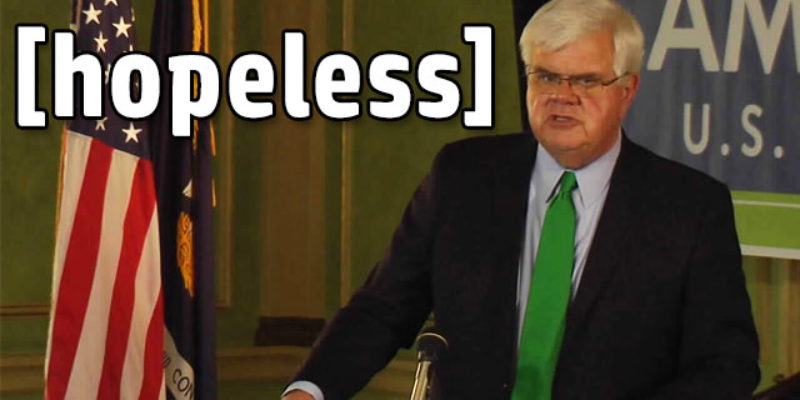Democrat Public Service Commissioner Foster Campbell would rather support crony capitalists than the little guy.
That much he proved last week when the Public Service Commission changed its rules regarding net metering. This refers to the legal requirement that utilities pay customers who generate their own power through solar energy for any excess above which the customer uses. After the end of this year, they will pay wholesale; previously, they paid retail.
Democrat Lambert Bossiere joined Campbell in opposing the change, while Republicans Mike Francis, Craig Greene, and Eric Skrmetta voted in the majority. Advocates noted that this roughly 6 cents per kilowatt-hour represented a subsidization paid by 99 percent of residential customers to the other one percent for no adequate reason. In particular, buyback participants put no money into overhead for building and maintaining transmission capacity, which otherwise justifies the difference between wholesale and retail.
Crying foul were representatives and employees of the solar panel industry, who alleged the change would cause job losses. The transfer of wealth from the overwhelming majority of ratepayers to a very few constitutes an incentive to install panels from these companies – although the vast majority of installations occurred when an overly-generous state tax credit made it possible for residential customers to get the panels essentially for free. Even so, a generous federal tax credit of 30 percent remains although scheduled to dwindle away, and the current PSC rule remains grandfathered in through 2034 for systems installed by Dec. 31.
But Campbell, who represents north Louisiana, downplayed concerns that ratepayers would miss the estimated $1 extra a year that they subsidize customers with panels. Perhaps he has forgotten his humble origins (his last legally required disclosure form from 2017 shows he has property worth at least $445,000 to $755,000 and annual income of at least $215,000 to $425,000, not including his wife’s assets or income). A dollar means something to low-income families who strain to pay their electric bills.
Advertisement
Beside that, there’s no intellectual justification for treating new customers with solar setups advantageously, much less existing ones. Campbell offered that Louisiana is a “dirty” state and should encourage a “clean” program. However, that comment displays ignorance that the production of “clean” energy is significantly environmentally harmful, although because Louisiana disproportionately doesn’t engage in high technology manufacturing it can export such costs more easily. Still, the marketplace best determines the mix of energy sources, and in Campbell’s own district in the past few months solar farms are sprouting in Caddo and Morehouse Parishes without overt government prodding.
This time, Francis and Skrmetta avoided the controversy of last year’s Windcatcher fiasco. They with Bossiere and Campbell voted to allow energy suppliers to substitute likely more expensive wind power for existing sources (although they did implement a customer savings guarantee that would have applied for the first decade that could have extended if a crucial federal tax credit wasn’t renewed). Fortunately for ratepayers across Louisiana and three other states, the deal fell through when Texas regulators unanimously rejected it. Simply, there’s no good economic reason to privilege renewable energy through government policy.
That extends to allowing expansion of subsidized solar energy by taking from the many to give to the few, whether they be those lucky enough to afford placement of solar panels on their roofs or those selling that product. Campbell often styles himself as a champion of the working man, but all he and Bossiere did with this vote was to show themselves willing to kowtow to special interests at the expense of ordinary folk.
Advertisement
Advertisement

